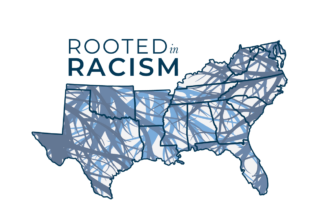Waffle House strike highlights the harms of the Southern economic development model
In March, workers at the Waffle House in Conyers, Georgia, went on strike. It’s not difficult to see why: They are paid wages as low as $2.90 per hour before tips, with a $3.00 per shift “meal credit” taken from their already meager wages regardless of whether they have eaten a meal at the restaurant.
But that is not all—worker safety is also at issue. Waffle House workers report working in dangerous environments and point to the constant threat of violence and the lack of trained security in the restaurants. Unfortunately, it is not uncommon for customers to start fights with or to attack workers. Waffle House staff is expected to deescalate these fights and call police rather than the store ensuring their safety and the safety of other customers. There are also robberies—one Waffle House worker was shot and killed during an armed robbery in Tifton, Georgia.
Finally, there is the practice of Waffle House restaurants being kept open during hurricanes and other disasters which endanger workers who are still expected to report for their shifts. One worker reported being asked to go to the store to purchase paper towels during a hurricane.
The conditions faced by staff at Waffle House restaurants exemplify the harmful philosophy of the Southern economic development model: that workers are just another commodity that can be replaced and a cost to be minimized. While financials are not public, Forbes estimates the owner of Waffle House has a net worth of $1.7 billion. Yet, 66% of Waffle House workers are paid less than $15 an hour and 24% are paid less than $10, according to our Company Wage Tracker. Thousands of Waffle House workers are paid poverty-level wages, with a portion of those wages being taken back as a “meal credit.” The meal credit that is automatically deducted from workers’ pay could add up to almost $30 million annually for Waffle House, according to reported estimates.
The Southern economic development model is characterized by low wages, lax regulation of businesses, low corporate taxes, and a lack of safety net supports for workers and families. But perhaps most important of all, this model requires that workers are divided because when they come together across racial, gender, class, and other differences, they are empowered to demand change.
Fortunately, workers across the region are increasingly recognizing that they have the power to stop wealthy and powerful corporations from continuing to extract their labor without fair compensation and without regard for their well-being or that of their families and communities. The Waffle House strike is part of a much larger movement of service workers across the South–in Alabama, Georgia, North Carolina, and South Carolina–joining together as the Union of Southern Service Workers to demand change.
Any policy regime or business model that does not protect the security of workers and goes so far as to require them to battle hurricanes to ensure that businesses remain open is not a model that should be maintained. Waffle House workers and many others in service jobs across the South are fighting to change this.
Previously from Rooted in Racism: Southern policymakers leave workers with lower wages and a fraying safety net
Next from Rooted in Racism: Operation Dixie failed 78 years ago. Are today’s Southern workers about to change all that?
⬅ Return to the Rooted in Racism main page
Enjoyed this post?
Sign up for EPI's newsletter so you never miss our research and insights on ways to make the economy work better for everyone.
